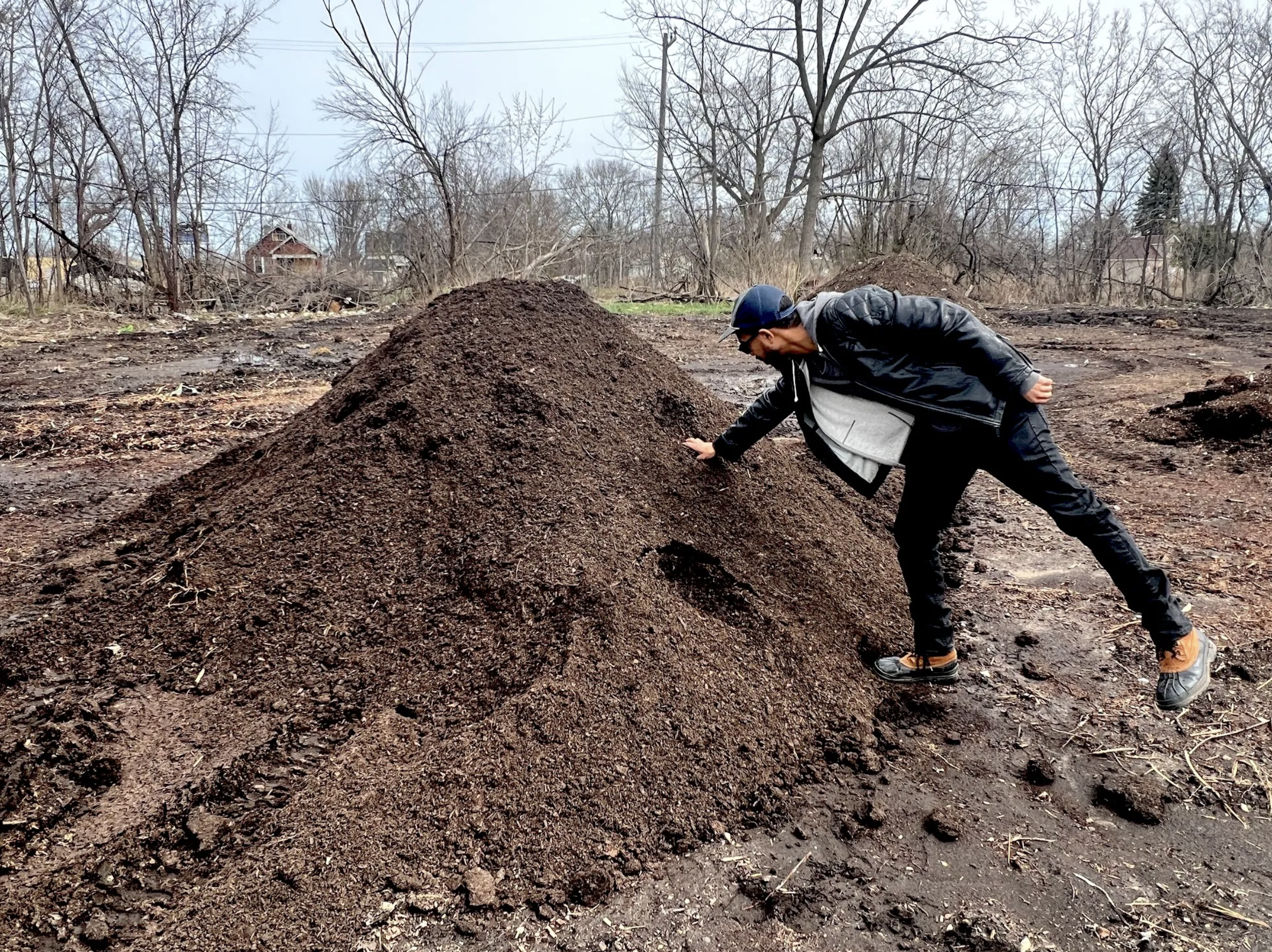
Detroit launches pilot composting program, ‘lays the foundation’ for citywide system
Detroit officials say the pilot program supports Michigan’s 2030 statewide goal of diverting 50% of food waste from landfills. They hope the pilot can divert as many as 220 pounds of food scraps daily, or over 80,000 pounds over the course of a year.
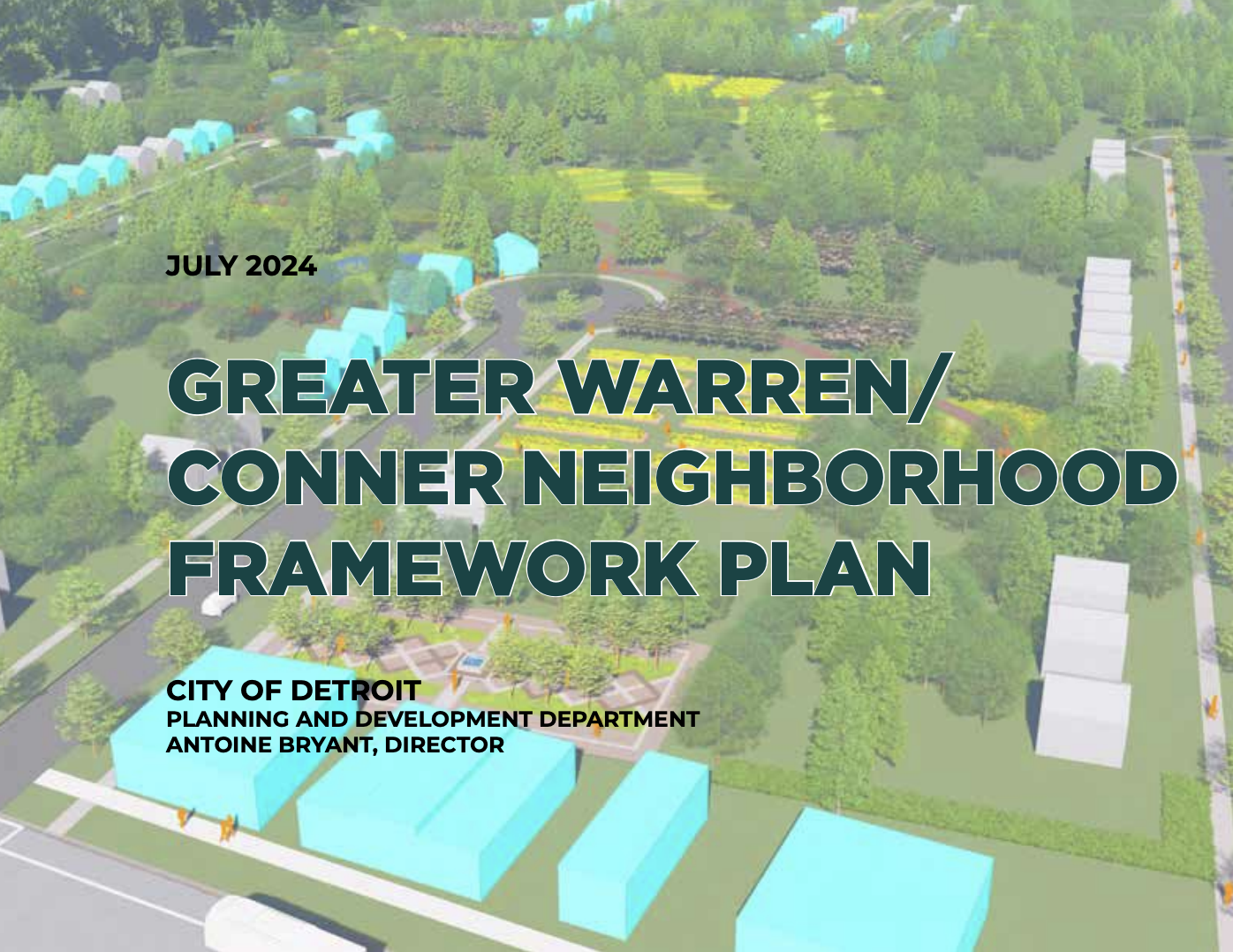
Greater Warren/Conner Neighborhood Framework Plan
Sanctuary Farms is honored to be recognized in the Greater Warren/Conner Neighborhood Framework Plan, a collaborative vision for resilient and thriving eastside neighborhoods. Our work transforming vacant lots into spaces for food production, composting, and community connection is featured as part of the City’s Resilience Zone strategies.

Detroit Farms Celebrate the Summer Solstice (Copy)
The NextCycle Michigan Accelerator program welcomed 16 new teams including the Detroit Decentralized Composting Network, a partnership between the City of Detroit and Sanctuary Farms.

Detroit Farms Celebrate the Summer Solstice
Sanctuary Farms hosted its first-ever Summer Solstice Block Party, centering Indigenous principles that honor the interconnectedness and equal value of all living things. The celebration was a joyful recognition of life’s blossoming and our shared place within the natural world.

Healing Land and Legacy Through Urban Agriculture
Sanctuary Farms was featured in a national spotlight on the power of urban agriculture to heal land, honor legacy, and drive environmental justice. As part of Detroit’s vibrant farming community, Sanctuary Farms advocates for regenerative practices like composting, agroforestry, and permaculture to reclaim contaminated land and build resilient food systems. The article highlights the urgent need for Congress to fully fund the Office of Urban Agriculture and Innovative Production, amplifying the voices of nearly 200 farmers and organizations calling for federal investment in sustainable, community-driven solutions.

Detroit Launching New Composting Programs this Summer to Reduce Food Waste
Sanctuary Farms is proud to help lead Detroit’s composting movement as part of the Detroit Community Compost Collection Project—a new pilot launching this summer to expand equitable access to composting. Alongside six local organizations, we’ll support 200 residents with materials, training, and stipends to turn food waste into “Black Gold.” At the same time, the City of Detroit is rolling out a complementary composting program with a free drop-off site and digester system. Together, these efforts aim to reduce landfill waste and move Detroit closer to Michigan’s goal of diverting 50% of food waste by 2030.

Green Queen on the Scene @ Circularity 25
At the 2025 Circularity Conference in Denver, Sanctuary Farms co-founder jøn kent was spotlighted in the panel "What Does It Really Mean to Be Regenerative?". In a powerful discussion on environmental justice and food systems, jøn named the structural barriers that have led to food apartheid in Detroit and shared how Sanctuary Farms uses a hyperlocal, community-rooted approach to advance regenerative agriculture. His remarks highlighted that true regeneration starts from the ground up—through soil restoration, food access, and building community power in historically excluded neighborhoods.

JB’s Bites: Community compost pilot
At the recent MI Healthy Climate conference in Detroit, it was announced that the Detroit Community Compost Collection Project (DCCCP)—a grassroots coalition including Sanctuary Farms, Detroit Black Food Sovereignty Network, Sacred Spaces, and others—is launching a community composting pilot for 200 participants. Supported by Industrious Labs, the project is part of a broader push to reduce food waste and invest in climate solutions, alongside over $1 million in state funding for composting initiatives across the city.

New community composting project to launch in Detroit
Sanctuary Farms is proud to be a founding member of the Detroit Community Compost Collection Project (DCCCP)—a new pilot launching this year to support 200 Detroiters in backyard and community composting. Backed by state funding and a grant from Industrious Labs, the project aims to fight food waste, improve soil health, and build a more just and sustainable food system across the city.

Compostable food packaging in Detroit often ends up in landfills. Here’s why.
In "Compostable food packaging in Detroit often ends up in landfills. Here’s why," BridgeDetroit explores the challenges facing compostable packaging in a city without robust composting infrastructure. Amid efforts by local cafes to switch to sustainable materials, Sanctuary Farms co-founder jøn kent offers a critical perspective, questioning the long-term viability of compostable plastics and highlighting concerns about PFAS contamination. Instead of relying on single-use alternatives, jøn advocates for deeper systems change—prioritizing reuse, education, and community-led composting models that restore soil and center environmental justice.

The Metro: Fighting food waste with composting in metro Detroit
On The Metro, local leaders discussed composting solutions across the region—including a shoutout to Sanctuary Farms on Detroit’s east side. As a community hub for sustainable practices, Sanctuary Farms is helping lead the charge in reducing food waste and enriching local soil through composting.

GreenBiz 2025: Making change now
At GreenBiz 2025 in Phoenix, the Emerging Leaders cohort—featuring Sanctuary Farms co-founder Jøn Kent—came together to tackle today’s most pressing sustainability challenges. This next generation of changemakers is breaking through institutional silos, translating bold ideas into action, and redefining leadership with resilience, collaboration, and purpose.
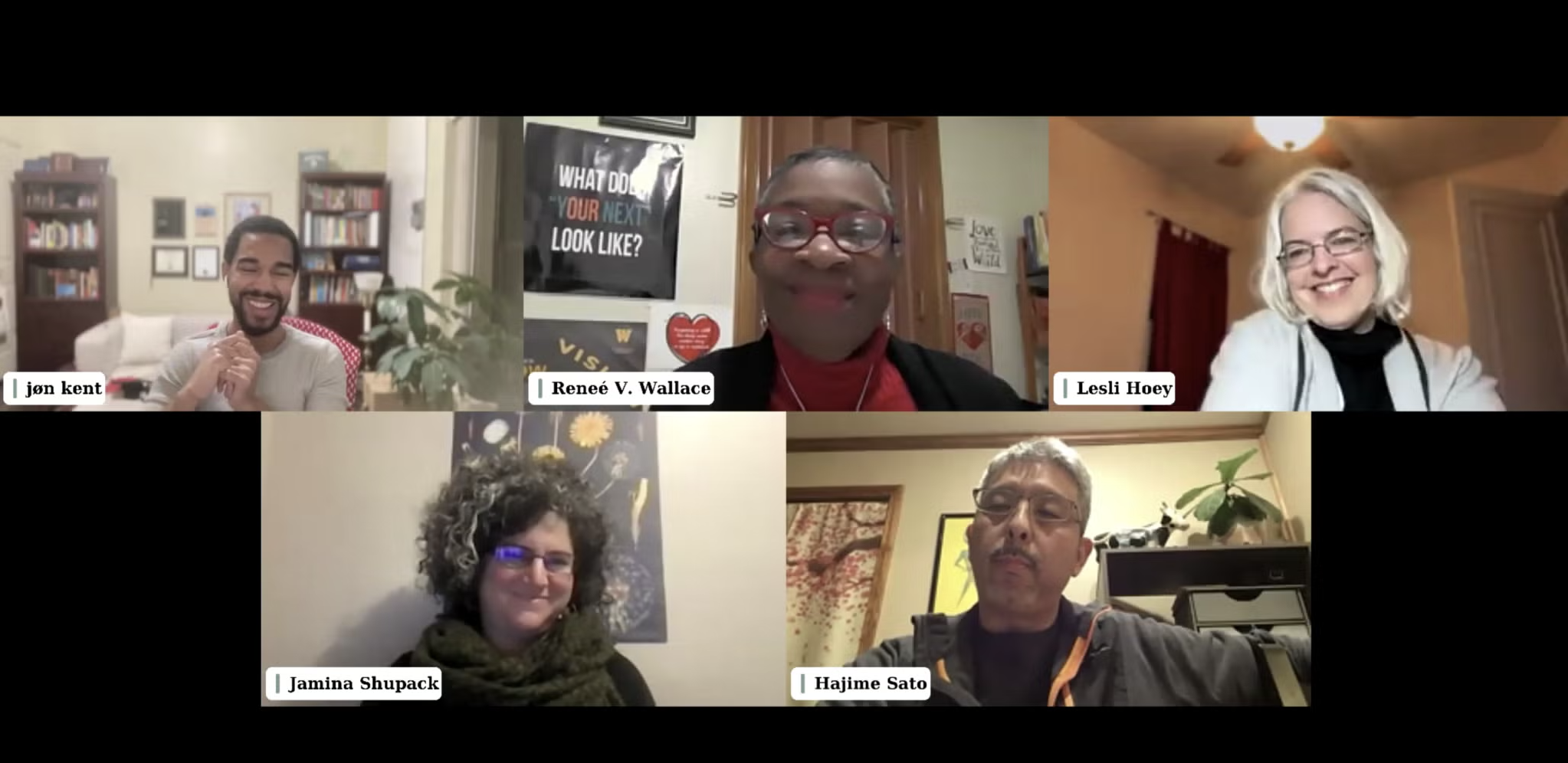
Panel on Food Waste (jøn kent, Reneé V. Wallace, Hajime Sato, and Jamina Shupack)
Learn from four innovative panelists: jøn kent, Reneé V. Wallace, Hajime Sato, and Jamina Shupack, as they share their insights and diverse approaches to tackling food waste.
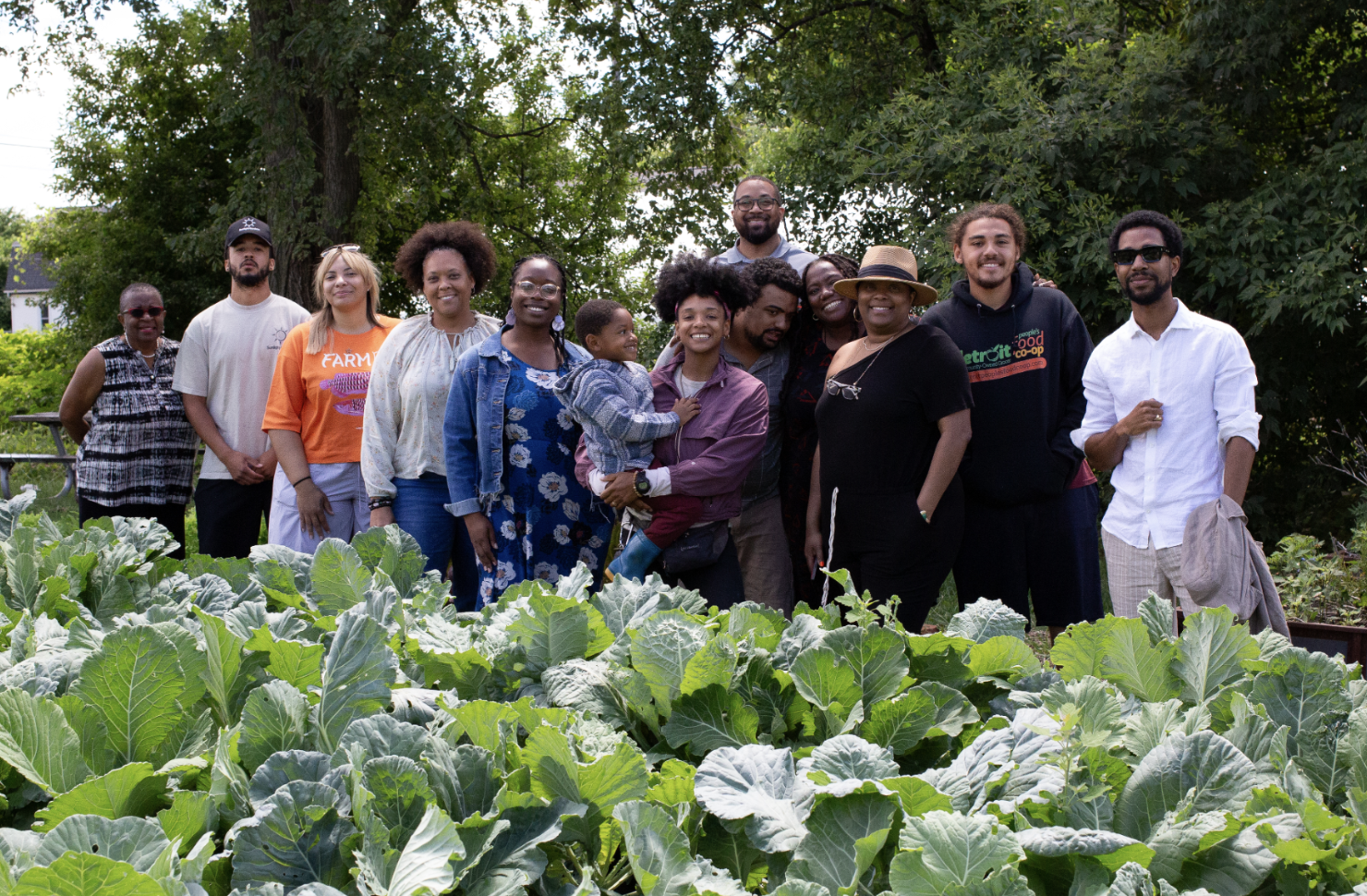
Equity and Access Co-Design Lab: Creating the Foundation for a Just and Equitable Food System in Michigan
The Equity and Access Design Lab series, facilitated by the Michigan Local Food Council Network, convened food and farming leaders to practice collaborative leadership focused on amplifying collective power across communities of color.
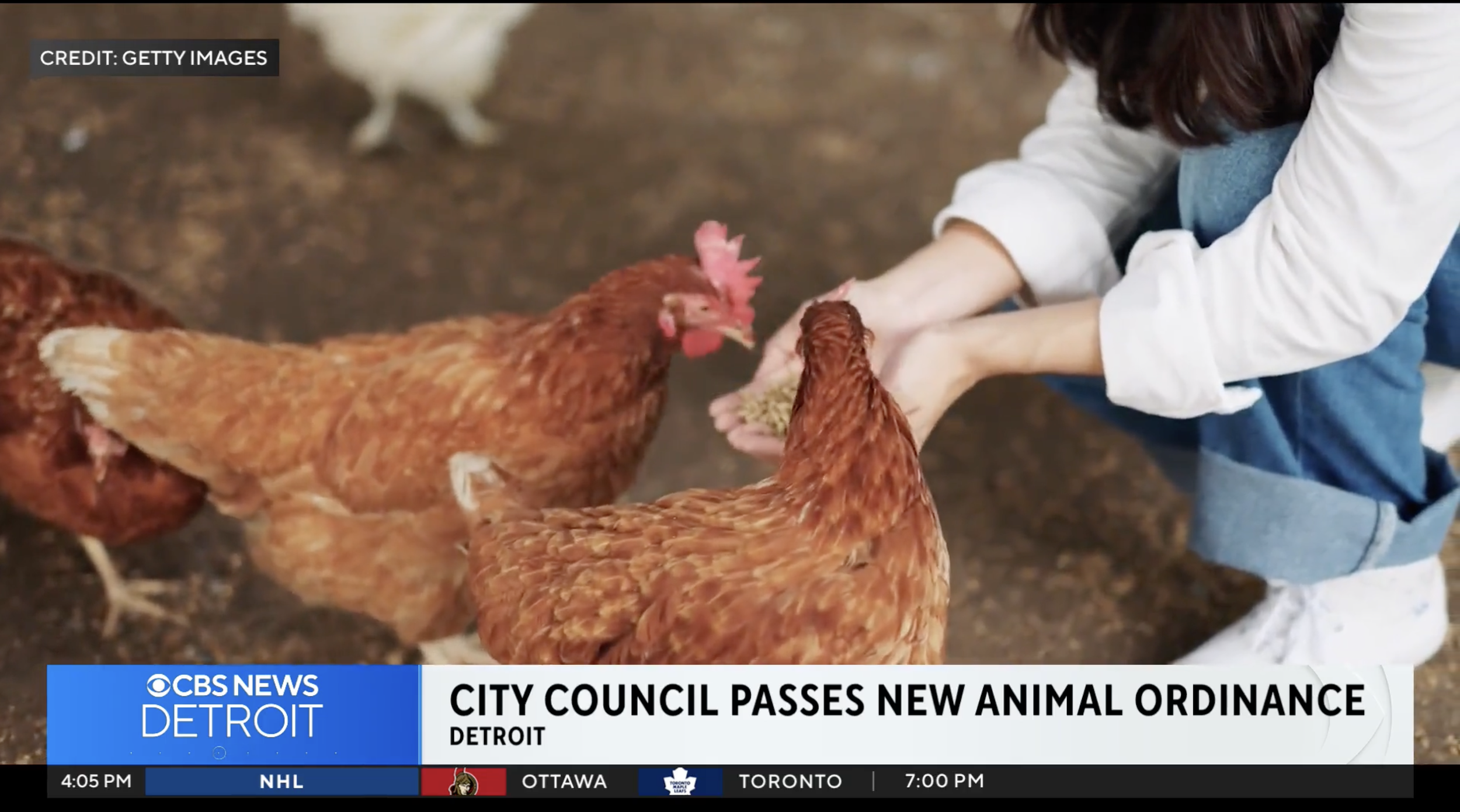
Ordinance allowing chickens, ducks and bees within Detroit city limits passes
Residents can raise up to eight chickens or ducks and a maximum of two beehives. More than 2,000 homes are expected to do so in the next 10 years, according to the city.
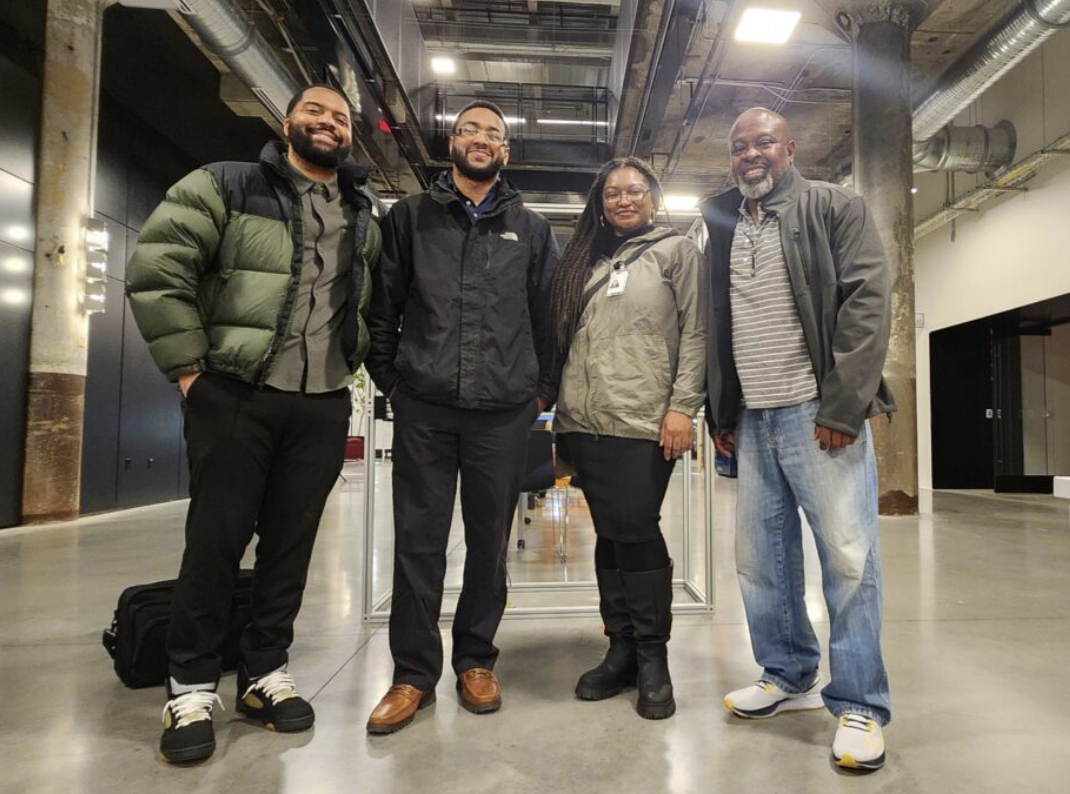
Ecosphere Organics on Advancing Sustainable Biorefining
A new survey shows that 86% of US farmers under 40 practice regenerative agriculture. But many — especially farmers of color — struggle to access land and capital.
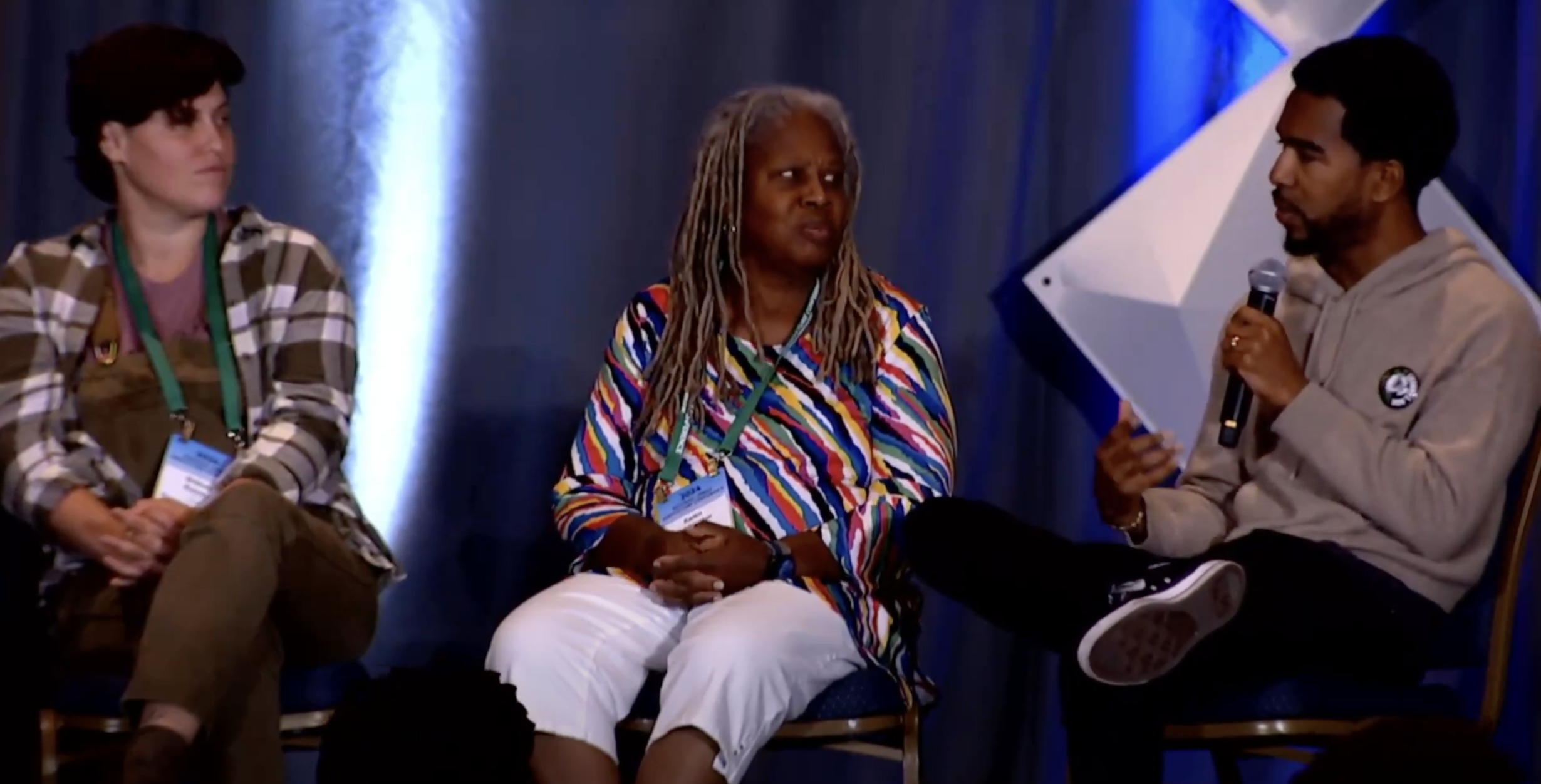
Lunch & Learn Producers Panel
Check out the Lunch & Learn Producers Panel by the National Urban Agriculture Initiative, featuring our co-founder jøn kent! jøn shares what it means to be a farmer in Detroit and highlights the impactful projects we’re working on to uplift our community and protect the environment.
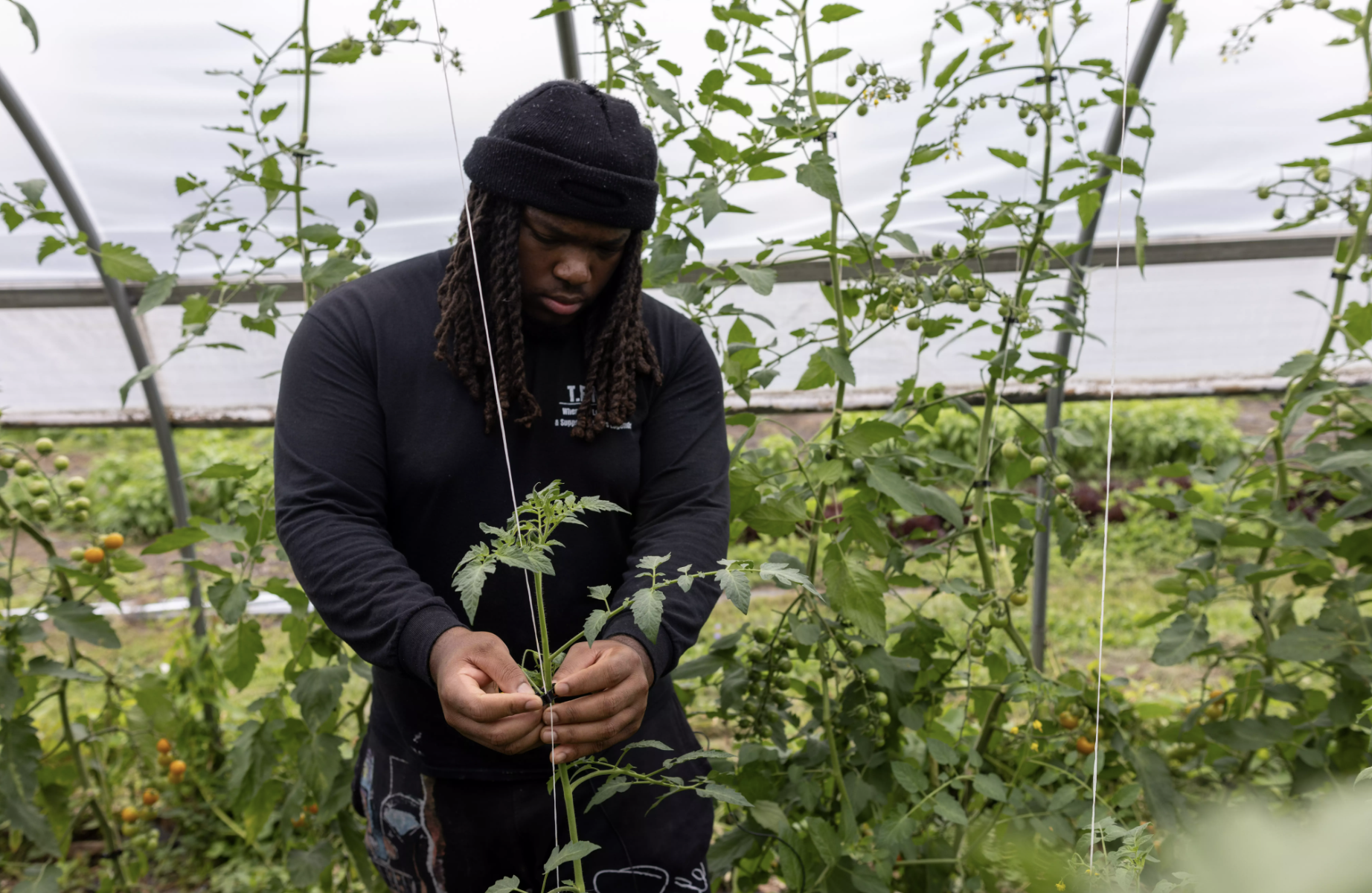
Know Your Farmer: Detroit Urban Growers
Detroit has a thriving urban agriculture community, where residents use available vacant land to grow food, feed their families and neighbors, and run successful farm businesses. Keep reading to learn about a few urban growers activating vacant land, supporting the natural ecosystem, and strengthening the local food system!
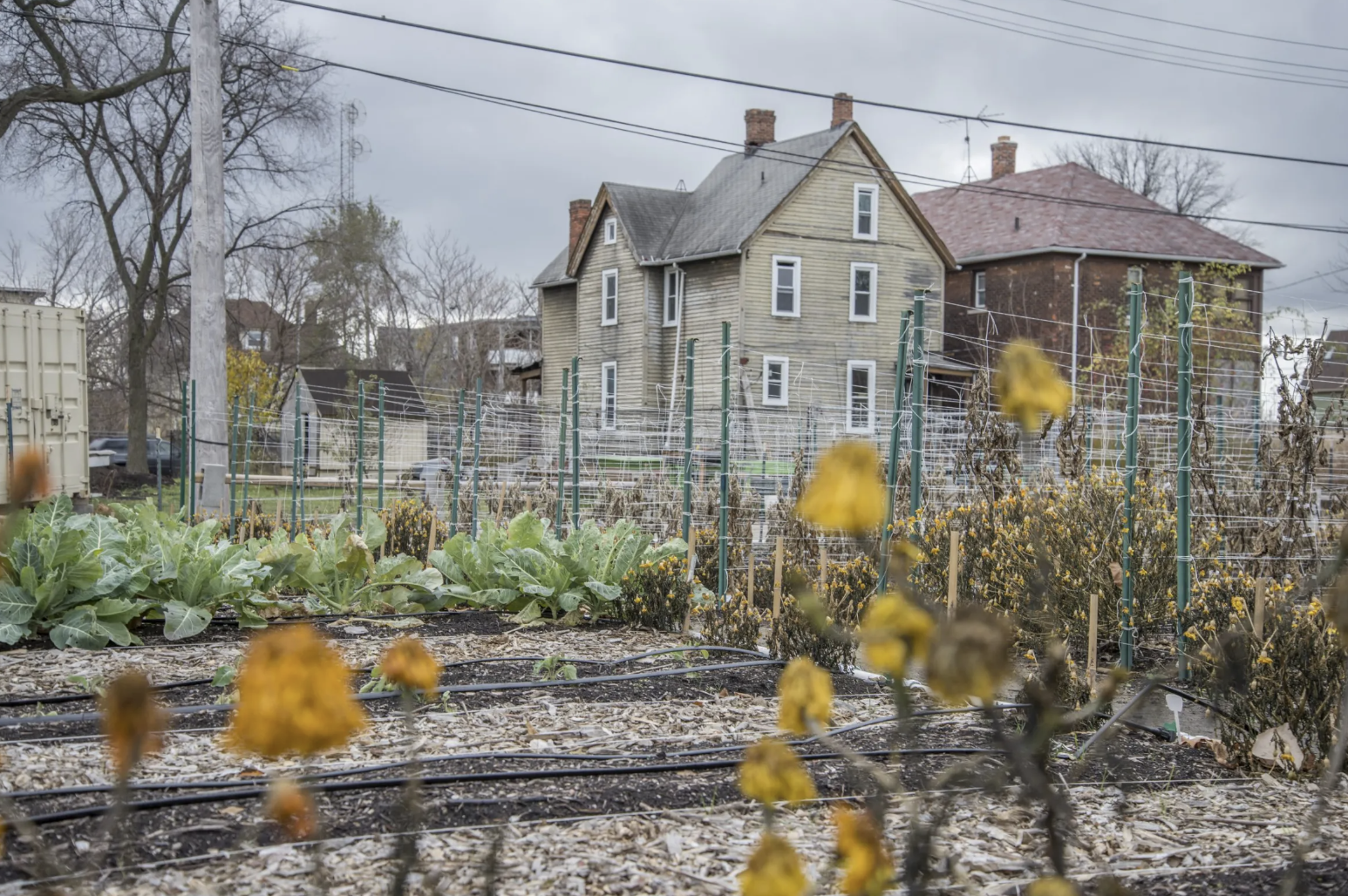
USDA falls short on bridging gap with Detroit urban farmers
Detroit's first National Urban Agriculture Conference spotlighted urban farming but raised concerns over the USDA's Detroit office being located in Ann Arbor, leading to director Jamal Thomas' resignation. Local farmers, including Sanctuary Farms' Jon Kent, struggled to connect with the office. The event emphasized Detroit's leadership in urban agriculture.

MDARD Hosts Roundtable to Develop New ‘Farm to Family’ Program Under Governor Whitmer’s Bipartisan Budget
MDARD hosted a roundtable to introduce the $3 million "Farm to Family" program under Governor Whitmer's bipartisan budget. The initiative aims to boost Michigan’s food supply chains, support local farmers, and expand access to healthy, locally grown food across the state.
